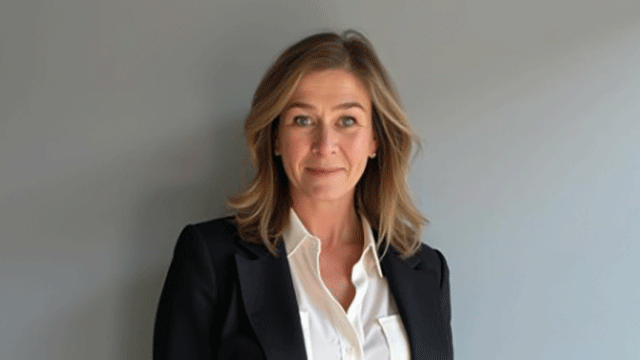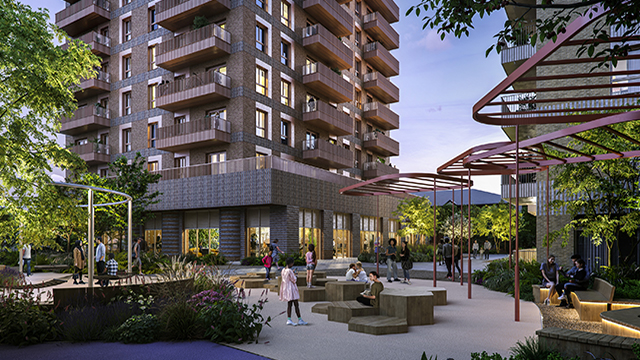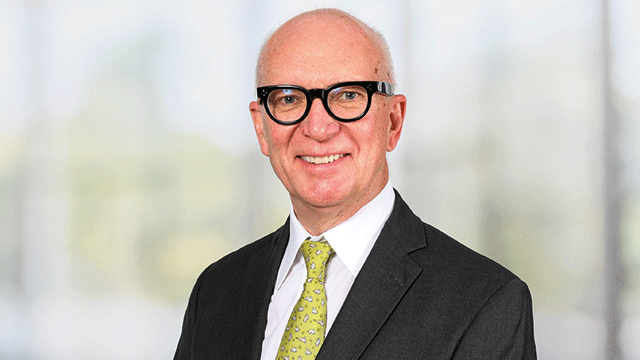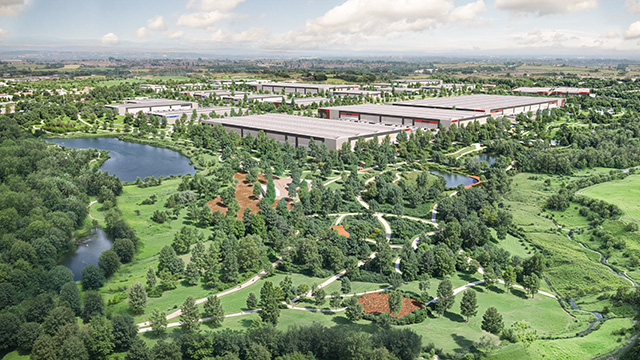GPE sets out framework for measurable social value
GPE has launched a social impact strategy that will ensure it delivers £10m of social value throughout its estate by 2030 through commitment to a wide range of measurable targets.
The strategy sees the REIT commit to delivering increasing investment – and outcomes – to the communities in which it is based by setting targets on spend with local business and community groups, and creating employment opportunities and partnerships with bodies to help mitigate many of the climate challenges that are more pronounced in deprived areas.
The plan for its sustainability statement of intent “The Time is Now”, says GPE, is intrinsically linked to its roadmap to reaching net-zero carbon.
GPE has launched a social impact strategy that will ensure it delivers £10m of social value throughout its estate by 2030 through commitment to a wide range of measurable targets.
The strategy sees the REIT commit to delivering increasing investment – and outcomes – to the communities in which it is based by setting targets on spend with local business and community groups, and creating employment opportunities and partnerships with bodies to help mitigate many of the climate challenges that are more pronounced in deprived areas.
The plan for its sustainability statement of intent “The Time is Now”, says GPE, is intrinsically linked to its roadmap to reaching net-zero carbon.
Nick Sanderson, chief financial and operating officer and chair of the social impact committee at GPE, said: “We want to build a sustainable legacy for our great capital city with positive social impact at its heart, while also supporting a thriving economy for London’s future.
“We have always worked hard to maintain sustainable relationships with our communities, and this strategy sets out clear commitments and actions against which we will hold ourselves to account as we strive to deliver our social value vision.”
Pillars of change
GPE’s vision is based around four main pillars: enabling healthy and inclusive communities; championing diverse skills and accessible employment opportunities; supporting the growth of local business and social enterprise; and connecting people with urban nature.
The REIT said that as part of the strategy it would work with its employees to champion social impact through their individual roles and with its supply chain, occupiers and local authorities on delivering social impact.
Practically, this sees GPE commit to a number of key targets, including organising at least two events annually with external partners to support skills sharing between its people and local communities, providing 100% match funding to encourage staff in charitable activities, undertaking independent accessibility audits to ensure its services and amenities in its spaces are accessible, and opening up its buildings to community organisations. It is currently looking at how its spaces could be used for homework clubs for the growing number of young people that don’t have access to the internet at home, or space to work.
The firm has also committed to develop at least one strategic partnership with an organisation working to alleviate fuel poverty and improve climate change resilience.
We want to build a sustainable legacy for our great capital city with positive social impact at its heart, while also supporting a thriving economy for London’s future
Nick Sanderson, GPE
Rebalancing the sector
Encouraging more people from diverse backgrounds into the sector forms a key part of the plan. GPE has committed to partner with at least three local state educational providers a year to deliver career workshops and meaningful work experience, and with at least three organisations to directly support 70 young people to learn and experience careers in the built environment each year, as well as to deliver at least two internships through the 10,000 Black Interns programme.
It is also working with investors and lenders to integrate social and environmental impact into its financing through a sustainable finance framework and facilities such as the ESG-linked revolving credit facility it secured in February 2020.
Setting a baseline
Other key measurables in the detailed plan include developing and implementing a formal scoring process for social and environmental impact in tender processes, working towards 25% of its development project budget being spent with businesses within the London boroughs in which it operates, and monitoring the monetary value of space, discounts and services offered to local charities, social enterprise etc, to enable a baseline to be set and annual increases on that investment to be delivered. The REIT will do the same with its spend with local businesses and SMEs.
Janine Cole, sustainability and social impact director at GPE, said that the firm had undertaken a lot of research with the London boroughs it operates in to understand the challenges their people face. It found high levels of deprivation and inequality and a disproportionate impact of climate change in the poorest boroughs, and she added that GPE’s strategy was part of its work to help with the levelling-up agenda in London.
Intrinsically linked
Cole highlighted the inescapable link between social value and sustainability, and how the REIT’s target on supporting an end to fuel poverty and making sure it delivered an annual 3% biodiversity net gain across its investment estate would support its work on both of these goals.
GPE said it would make sure it was accountable for its actions and would be publishing progress – or lack off – annually.
“This is not a nice-to-have,” said Sanderson. “This is integral to what we do. This is core to the strategy and evolution of our business.”
“This is rising up the agenda with investors, and our customers want to work in buildings in thriving communities,” added Cole. “And our team wants to work in a company with purpose.”
GPE has also committed to sharing its learning and best practice with its peers to ensure the sector as a whole becomes more accessible, diverse and inclusive.
“We ultimately won’t be able to do this on our own,” said Cole. “We need to work with our peers on this.”
Click here to read the framework in full.
To send feedback, e-mail samantha.mcclary@eg.co.uk or tweet @samanthamcclary or @EGPropertyNews
Photo © Alexander Suhorucov/Pexels











